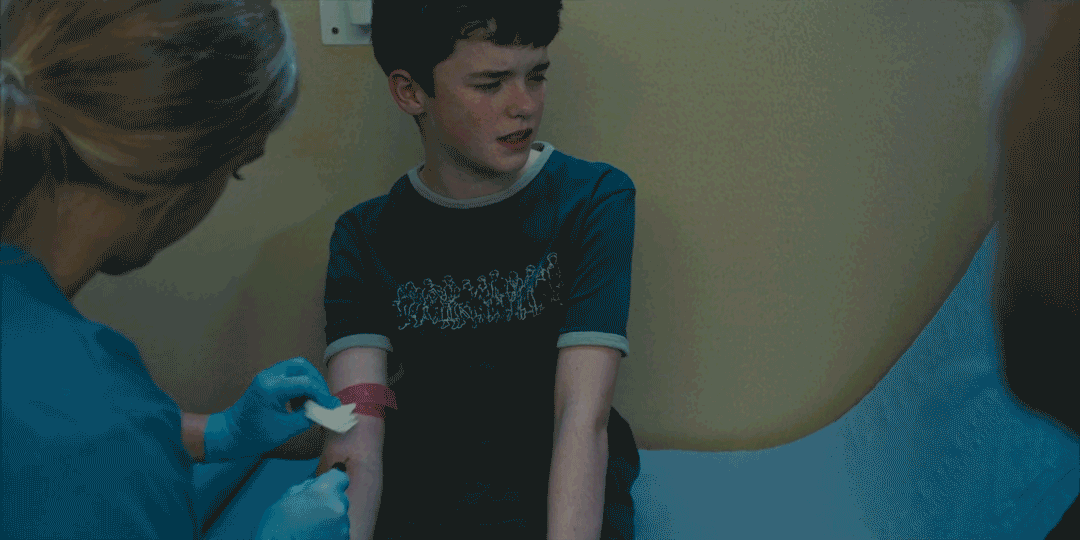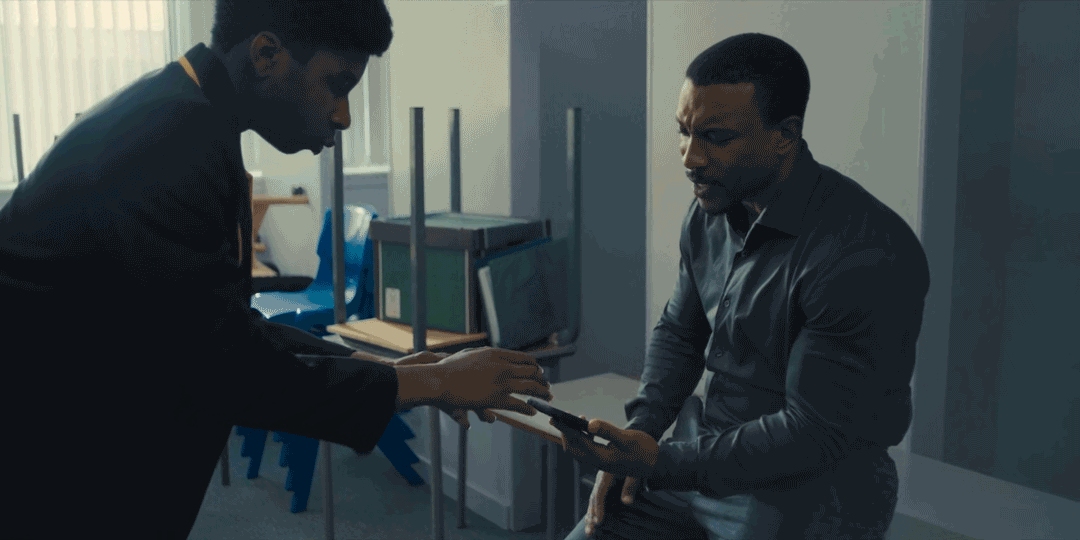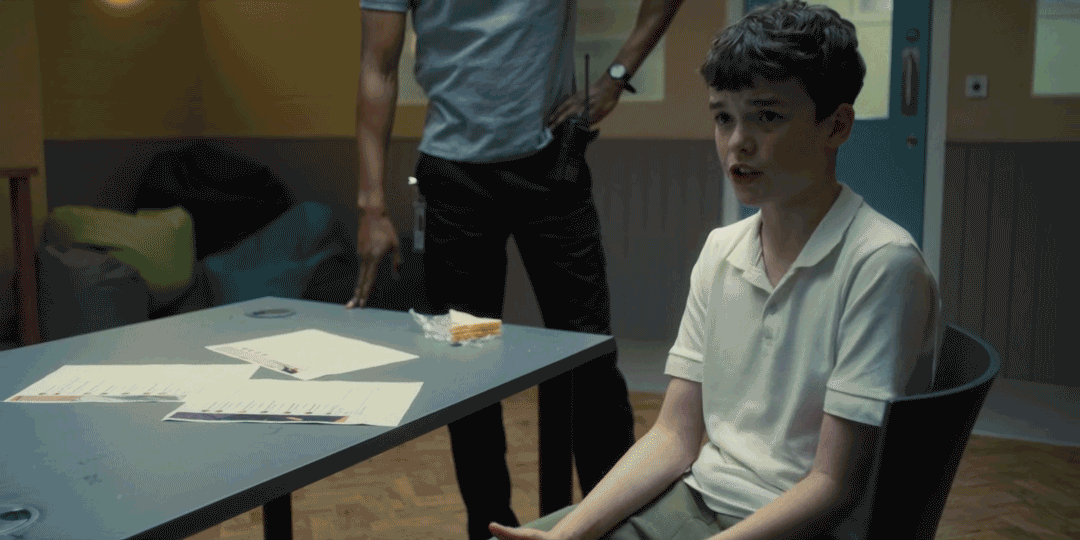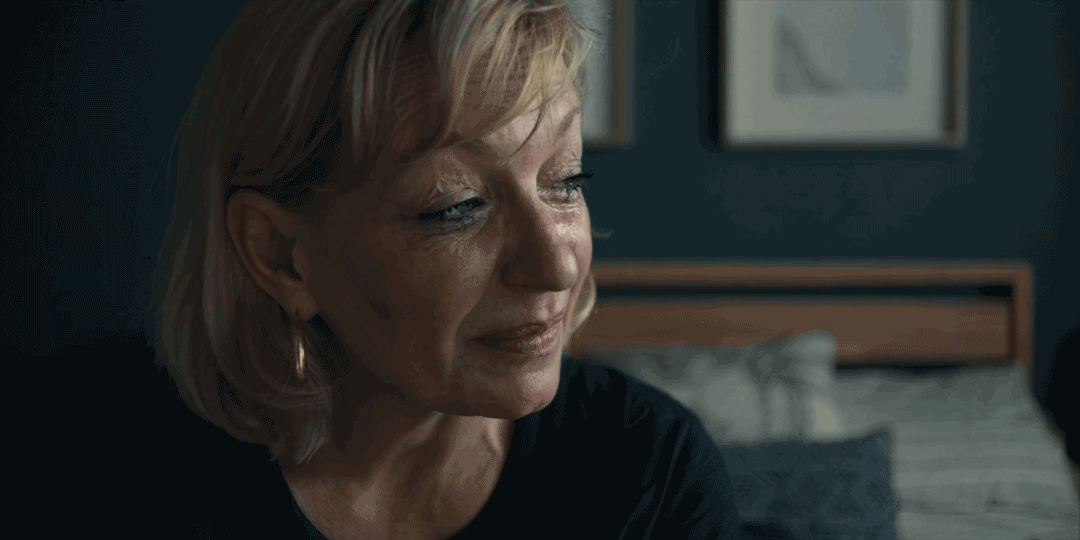What Netflix’ Adolescence Can Teach Us About How We See Boys
The Netflix show Adolescence tells the story of a 13-year-old boy named Jamie, who is accused of murdering his classmate Katie. The four-part limited series follows Jamie; the police detectives working to convict him, the child psychologist attempting to understand him, and his parents, whose lives are shattered from the very first scene.
It received a 99% rating on critic aggregator website Rotten Tomatoes, where it’s summarized as a masterclass in televisual storytelling and a searing viewing experience.
Memorable. Powerful. Devastating.
I knew what I was getting into when I started the show. But it wasn’t until the dramatic end of the third episode that I knew it had something powerful to say about boys and young men.
When Jamie finds out that Briony, the child psychologist with whom he feels a sense of connection, won’t be coming back, he starts to slide towards panic. In a moment of desperation, he asks if he can ask her one last question.
I assumed the question would be, “Do you think I did it?”
It wasn’t. Instead, he asks with all the raw emotion of a teenager who hates himself far more than anyone else could, “Do you like me?”
All of a sudden, I was transported back to 2016.
I’m sitting with a teenage boy on a park bench carved with strangers’ initials. He’s facing me but he’s focused on picking at a worn wooden letter in front of him. We’re talking about perception. “My teachers think I’m a waste of time, my friends think I’m a jerk. Even my own parents don’t like me,” he says, his eyes fixed deliberately on the bench between us. “They told me.”
“Your parents told you they don’t like you,” I say.
His lips barely move. “That’s what I just said.” I don’t say anything back, and he’s quiet for a couple moments. “Do you?”
I don’t move. “Do I what?”
He breaks off a chip of wood and looks up at me, and in his eyes I see a mixture of trepidation and vulnerability, a hint of defiance and a halfhearted attempt to seem indifferent. “Do you like me?”
I told this story in The Heart of a Harsh Boy, an article I wrote in the midst of the #MeToo movement in 2018. The point I was trying to make was that we need to commit ourselves to connecting with boys. Even the ones who are hard. Especially the ones who are hard.
“Teenage boys are seen as inaccessible,” I wrote. “Unapproachable. Impenetrable. It’s the same ‘boys will be boys’ rhetoric, only no one is saying it out loud.”
In Adolescence, everyone from the police detectives to Jamie’s own parents are unprepared to truly understand the gender-based issues being experienced and perpetrated by boys and young men.
Someone has to point that out.
The punitive justice system has no room for nuance.
In the first episode, we see our first glimpses of a legal system that is structured in a binary. Either Jamie is innocent, or guilty—it was either a misalignment of evidence, or he’s the perpetrator of an unimaginable crime.
In the detectives’ initial interview with Jamie, the limitations of the legal system become apparent—they have the evidence to prove he did it, which means they’re not looking for complexity, they’re looking for a motive.
“There will be blood on those trainers, Jamie,” Detective Inspector Bascombe observes, leaning forward on his elbows. “And with this tape as evidence, it's not looking good.”
“Do you want to give us a reason why?” he asks. “Why would you do something like this?”
In this binary, there is one truth: Jamie is guilty.
My colleague Ali has been talking recently about two-eyed seeing, a Mi’kmaq concept that brings together both Indigenous and Western ways of knowing.
What if we could see two things at once—the evidence that Jamie committed the crime, and his insistence that it wasn’t truly him. What would that mean?
It would mean being capable of seeing his humanity—a capability that is undermined by the legal system itself. There is no room in this process for a scared little boy. When Jamie is uncomfortable getting his blood taken, for example, their only recourse is letting him know that it could harm his defence to refuse.
And again, this isn’t a critique of the detectives or police officers themselves, who are almost always doing their jobs with firm professionalism—this is about observing a system that cannot see boys, particular boys who have caused harm themselves, as vulnerable.
As they present the evidence against him, the additional blindspots of the police investigation become increasingly clear. They do their best to connect the dots between his public Instagram posts but are either unaware of or unwilling to admit the depth of relational complexity, tension and reciprocal harm that defines boys’ experiences behind the closed doors of their social media accounts.
It’s not until DI Bascombe’s teenage son points it out to him that they start to colour the misogynistic rhetoric of the manosphere in between the lines. And it’s not until Jamie’s interview with a psychologist that it becomes clear that the narrative of the manosphere was weaponized against him, not the other way around.
If they’re not done right, conversations with boys can push them further away.
The most taut episode of the series revolves around this conversation between Jamie and Briony, who’s been hired to evaluate whether or not he could be found legally innocent. There’s clear relational rapport between them, although Jamie flits between trust and distrust as he navigates the difficult feelings of reaching for a lifeline that could be yanked away in front of him.
It quickly becomes apparent, however, that Briony is under-equipped to see the world through the relentless pain and duelling indifference of the male adolescent gaze.
She asks about a fight, for example, which Jamie protests wasn’t a fight. “He hit me first,” he tells her, incredulity straining his voice. “Because we’ve had beef over other stuff. It doesn’t matter. It wasn’t a proper fight.”
While she leverages his incredible skill as an experienced child psychologist to reorient the conversation back towards a place of trust, she repeatedly loses him each time he lets her see a glimpse of his pain. In each moment of vulnerability—when he talks about his dad taking him to football, when he asks if she can get him moved to a different facility, when he tells her that he thinks he’s ugly—the distance between them grows.
This is the conversation that concludes with Jamie’s heartbreaking question of whether or not she likes him. “Because I like you,” he tells her. “Not like that. Not fancying you. Just as a person.”
The security guard tells him to get up. “Don’t you even like me a bit?” he asks, his voice rising as the security guard puts his arm around Jamie’s chest. “What did you think about me, then? Decide, come on!”
Briony tries to keep it professional. Her job was to evaluate him, not to comfort him. And to be clear, it’s not the job of any girl or woman to be the target or recipient of male grief and rage.
But even as someone who’s spent hours with him week after week, and even at the end of their relationship, she couldn’t tell him she liked him.
It was like she couldn’t see him at all.
Family is where boys sink or swim.
Jamie’s parents never truly see him; we’re not even sure when they last did.
In the first episode, Eddie and Manda are understandably shaken and scared and unutterably convinced of his innocence, and then heartbroken when they see the evidence in front of them.
By the end of the series 13 months later, they’re just doing their best to stay afloat. But the facade starts to crack as they’re dealt multiple blows by neighbours, by vandals, by well-meaning strangers and by Jamie himself.
“I…I've thought about it, and…Dad, I'm gonna change my plea,” he says over the phone while Eddie drives in silence. “Hello? Dad, I'm…I'm sorry, but I'm gonna plead guilty.”
As their feelings spill over, Eddie and Manda try to make sense of what happened. They know it had something to do with the messages that Jamie was coming across online, and they know it had something to do with his temper, but what comes across is ultimately a feeling of helpless confusion.
They’re trying to navigate their own grief and process the guilt that is threatening to drag them both under. In the way they talk about Jamie, however, you can hear the same weight of expectation as the detectives, as the psychologist and the looming judge and jury. They’re trying to reconcile the boy who sat at the kitchen table drawing for hours with the boy who committed such a crime and they keep ending up at the same conclusion: Jamie is a monster.
Eddie describes the physical violence he faced from his father, and how he chose to never put that on his children. “You’re a good dad,” Manda tells him. “So if my dad made me,” Eddie responds, choked with tears, “how did I make that?”
There’s no room in this story for a boy who made a mistake. I truly don’t say this to minimize the monstrosity of his mistake, but to point out that to view him as a monster is to deny his humanity.
And as I wrote in a previous blog post about masculinity and violence, this denial results in a critical misdirection—monsters are not seen as gendered creatures, which means we can’t unpack the depth of masculinity at play.
In some ways, that’s easier, because if he’s not human, he’s not one of us.
But thanks to the hard work of Owen Cooper, the actor who played Jamie, we can see firsthand that he is one of us, and he’s both: he’s the scared and hurt young boy who can’t understand why his father won’t look at him, or why Katie won’t stop taunting him, and he’s the clenched-fist angry young man who ended his classmate’s life and jumped at the only friend he had left just to make her flinch.
While Adolescence is telling a devastating story, it is also telling a limited one. We see adults acting professionally and adults falling apart, but this show doesn’t show us what curious and compassionate adults look like in the face of boys’ pain and harm. We see angry boys and hurt boys, boys carrying fear and boys bluffing with bravado, but we don’t see the thoughtful, clear-eyed and gentle masculinity that is already being championed by boys who will become the next generation of men.
I do that work every day. And I see those boys every day.
So take it from me: we need to write a new story ourselves.








